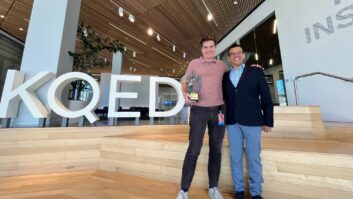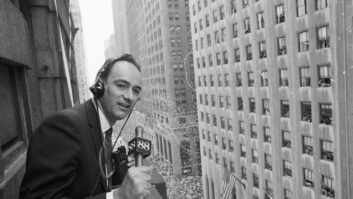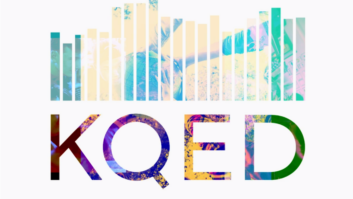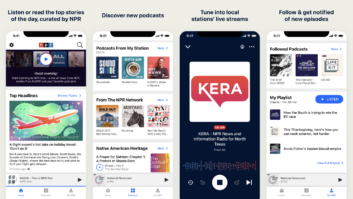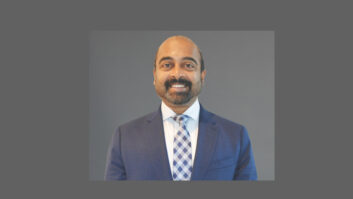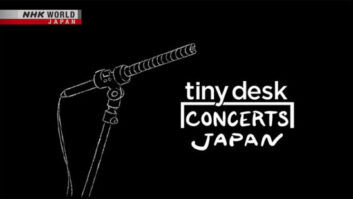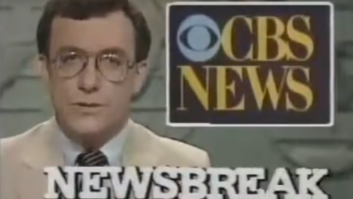We continue our series on the evolution of streaming technology. In this month�s edition we cover the technical aspects of NPR One, an on-demand service that brings hand-picked stories from the entire radio network to mobile devices. We talked with Demian Perry, director of mobile at NPR, about what NPR considers the �the Netflix of listening.�
Demian Perry is director of mobile at NPR. Fardau van Neerden:What was the reason for developing NPR One?
Demian Perry: To remain relevant with digital audiences seeking a pure-play listening app.

van Neerden:When did development of NPR One get started?
Perry: Early prototypes and requirements gathering began in 2013.
van Neerden:Did you look into existing platforms to meet NPR One goals?
Perry: Yes, but we demonstrated that we could get significantly higher audio engagement with a pure-play listening app.
FvN:Why weren�t existing platforms suitable? And do you think that the industry is catching up in this area?
Perry: Whenever we present audio content alongside the transcript or an article adapted from the audio, our users almost always (at least 95 percent of the time) choose to skim the text and forego the audio. Remarkably, though, once a user starts listening to audio, nearly 90 percent listen all the way to the end of the story, and almost everyone continues listening past the original piece.
It�s a bit like the way a dieter might be reluctant to try a dessert, but once they take the first bite, it�s hard to stop. Our time constraints have made us all into media dieters, and we are all reluctant to commit to a broadcast experience (particularly over mobile). It�s unfortunate because, unlike the way our bodies respond to a rich dessert, our minds are probably all a little better off the more we consume public media.
van Neerden:What challenges did you face during development?
Perry: The largest challenge was reconciling our experience as curators with the need to use some data science for content personalization.
van Neerden:How is content ingest workflow managed?
Perry: Through our existing, homegrown CMS [Content Management System].
van Neerden:How long does it generally take for an item to become available for customers?
Perry: Less than 10 minutes � it�s a near-live experience.
Nipper stands guard near NPR One servers. �Our cloud comprises a single logic architecture, but it is distributed across many servers all over the world,� says Demian Perry. van Neerden:How do you maintain a general level of audio quality when so many different local broadcasters contribute content?
Perry: Our stations set quality standards for the network, and we enforce those standards through algorithmic filters when possible. For example, we can set duration and recency filters for all ingested content. We also share ratings with our stations along with benchmarks, so that they can constantly improve their approach to storytelling and newsgathering.

van Neerden:Do you use cloud solutions for parts of NPR One?
Perry: All the logic is in the cloud, and much of the experience and cohort testing is also dictated by the cloud.
van Neerden:Do you use multiple clouds as a means of redundancy/failover/load-balancing?
Perry: Sort of. Our cloud comprises a single logic architecture, but it is distributed across many servers all over the world. We also have redundancy in our databases and caching layers to keep our service up in the event of a more catastrophic crash.
van Neerden:Are there any software as a service solutions that you use or do need to maintainyour own application stack and use the cloud solely as a platform as a service?
Perry: The core listening service is a mix of open-source software and our own, homegrown, NPR-proprietary stack. For competitive reasons, we have to keep the individual components secret, but it will come as no surprise to people familiar with recent developments in data science that we are able to batch and cache personalization decisions. In other words, we are relying more and more on a �job server� approach to codify user content preferences on a nightly basis to simplify the next day�s calculations.
van Neerden:How do you handle traffic? Do you rely on content delivery network, and if so, do you maintain your own CDN or use third-party?
Perry: We use a number of third-party CDNs.
van Neerden:Do you measure the user listening experience with client- and/or server-based metrics?
Perry: Yes, we use both. Client metrics are all third-party, but we have developed some homegrown cloud metrics as well.
van Neerden:How important is quality of service, and how do you manage that?
Perry: Very important! We track audio buffer times and dropouts, and measure API response times constantly. We manage through constant codec/protocol/bitrate improvements and heavy performance testing of loads that are many times our highest observed spike.
van Neerden:How important is search and recommendation and how did you develop this offering?
Perry: We use third-party search engines and have a homegrown recommendation service developed by our dev team with support from our data science team.
van Neerden:Can users download podcasts for offline playback?
Perry: Podcasts are automatically downloaded as the user is accessing them, and we are developing user-initiated downloads.
van Neerden:Do you use adaptive streaming technology or plan on doing so?
Perry: Yes. HLS is baked into the cloud for nearly all our audio.
van Neerden:Do you need to apply digital rights management on your content?
Perry: This is handled by our API, and in some cases, through our contract agreements with platforms.
van Neerden:Do you plan to move into the automotive entertainment with NPR One (Apple Carplay/Android Auto)?
Perry: Yes. We already support both.
van Neerden:Do you plan to enhance NPR One with exclusive material?
Perry: We are already running exclusive content in NPR One, and we plan to expand exclusivity and early listens extensively in 2016.
van Neerden:Do you think that NPR One is a step into fully on-demand (IP-based) consumption of content and eventually the end of linear broadcasting/programming?
Perry: What we�re seeing in the music space, at least, is that digital listeners overwhelmingly prefer the on-demand user interactive model. This is evidenced by the relative popularity of services like Pandora relative to live music streams.
But there are many things that are different with news and talk content. Unlike music listeners, our listeners don�t like to hear the same thing twice, and with news there�s certainly value to a true live experience. We also know from user surveys that many of our listeners value a host and the sense of community that comes from hearing the same thing at the same time as everyone else. These are problems that are hard (though not necessarily impossible) to solve in a service like NPR One.
So I guess we�re not sure whether on-demand will dominate news the same way it has dominated music, but we�ve decided as a network that we can�t afford to sit back and see what happens. We have to actively try to disrupt ourselves so that our news mission will remain relevant, regardless of the direction our audience takes.





